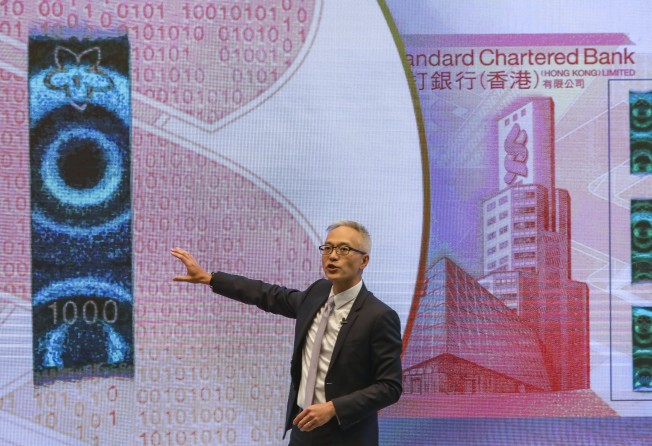Despite extradition protests, China’s economic stimulus and US monetary policy easing leave Hong Kong well placed
- China’s stimulus measures and the US Fed’s expected interest rate cut are likely to boost the Hang Seng Index, which in turn will support the Hong Kong dollar. Traders shorting the currency should rethink their strategy

Markets always have to react. Attacks on oil tankers in the Middle East prompt a higher oil price. China unveils measures to boost automobile sales and the price of palladium is affected. But, while immediate market reactions are perfectly rational in the moment, those decisions may not stand the test of time.
Take Hong Kong for example. Clearly, last week’s use of beanbag rounds, rubber bullets and tear gas in Admiralty was hardly going to elicit a positive reaction from investors, and the Hang Seng Index duly came under pressure.
Yet, if Hong Kong hadn’t been beset by controversy over the proposed extradition bill, there’s a persuasive argument that, rather than having downside concerns, investors should instead be focusing on the near-term potential upside for Hong Kong assets.
In the currency space, the Hong Kong dollar, managed by the Hong Kong Monetary Authority within a HK$7.75-7.85 band versus the US dollar, was already at the HK$7.85 end of its set range before the present situation developed.
“It’s worth remembering that the Hong Kong dollar has been under pressure for virtually all of this year, with spot stuck close to the edge of the band from late January onward,” Simon Derrick, chief currency strategist at US bank BNYMellon wrote last Thursday.
So unless the HKMA is prepared to abandon its long-standing policy towards the Hong Kong dollar, even if recent Hang Seng Index weakness owed something to overseas disinvestment, any resulting capital outflow couldn’t result in further Hong Kong dollar weakness being reflected in its value versus the greenback.
And, as generations of foreign exchange traders have learned to their cost, and while US hedge fund manager and Hong Kong dollar bear Kyle Bass would certainly disagree, the HKMA has both the will and the tools to defend its currency policy.
Meanwhile, the more speculators in the spot market seek to test the HKMA’s resolve by shorting the Hong Kong dollar at 7.85 to the greenback, the more Hong Kong dollars have to be borrowed to fund that position.
That’s okay when the cost of borrowing Hong Kong dollars is less than the yield earned from holding greenbacks.
But when, as recently occurred, the cost of funding the short Hong Kong dollar position exceeds the return accrued from being long on greenbacks, speculators who primarily like the trade for its positive carry are minded to exit their positions and buy back their Hong Kong dollars.
Moving broadly, it is inarguable both that China has been unveiling measures intended to stimulate the Chinese economy and that, in the United States, markets believe the Federal Reserve is poised to cut interest rates soon.
Hong Kong “will benefit from Beijing’s programme of measured credit and fiscal easing, which includes boosting infrastructure spending and encouraging banks to ramp up on-balance sheet lending,” wrote Eleanor Olcott, China Policy analyst at research firm TS Lombard last week. “The expected Fed cuts … will help ease monetary conditions in [Hong Kong], which imports US monetary policy owing to the US dollar/Hong Kong dollar peg.”
In normal circumstances, Hong Kong would surely be a prime beneficiary of a combination of Chinese economic stimulus and lower US interest rates. The Hang Seng Index should rise rather than fall. Assisted by overseas capital inflows, the Hong Kong dollar should appreciate rather than be stuck near HK$7.85 to the greenback.
As for the now-suspended extradition proposal itself, even if it had been enacted under the original timetable, TS Lombard’s Olcott argued “the short-term impact of this bill should not be exaggerated” while nevertheless acknowledging that, in the longer term, Hong Kong will become “increasingly entangled in the geopolitical struggle” between China and the US.
In the shorter term, suspension of consideration of the extradition bill arguably undermines the contention of some US politicians that an alleged erosion of Hong Kong’s autonomy means certain trade-oriented benefits, that Hong Kong enjoys with the US but China does not, should be reassessed. If that proves the case, then that too could support Hong Kong assets.
Of course, if in the years ahead, the relationship between China and the US is going to be more fractious, it would be unrealistic to assume Hong Kong will not be dragged into the fray. Yet the future is unwritten while market gains and losses are made in the present.
The extradition bill has been a tremendously emotive subject but if investors can strip that issue from their calculations, then the near-term outlook for Hong Kong assets looks positive.
Neal Kimberley is a commentator on macroeconomics and financial markets